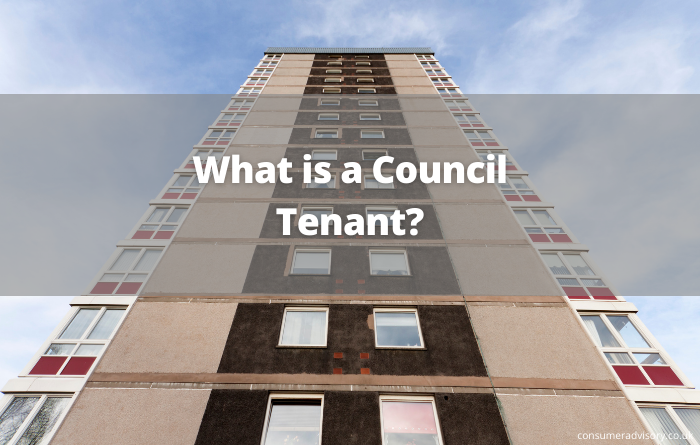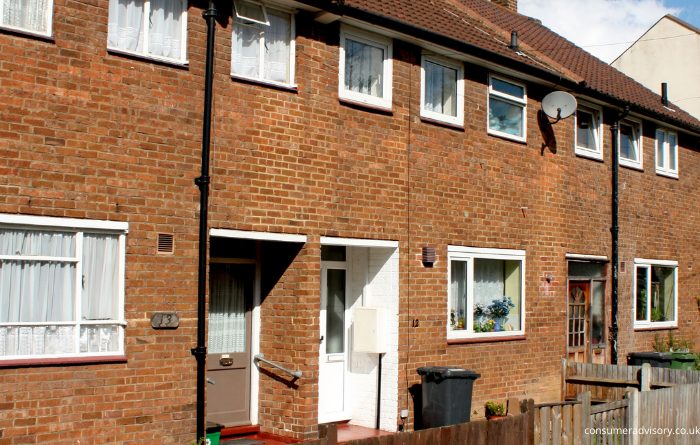
What is a council tenant? A council tenant is someone who lives in social housing, which is owned and managed by a local authority.
In the UK, social housing is usually divided into three categories: council tenancies, housing association tenants, and private renters. People within this group are the lowest-income group, and they are entitled to some of the most affordable rents in the country.
The council generally has more power in this area than most private renter tenants. What type of tenancy agreement the council gives you affects your rights including how and where the council can evict you and the way your rent can rise.
Social housing has increasing importance in the market because the housing is cheaper compared with private renting. This generally enables safer, longer-term tenancy. Private rentals are leased housing occupied by a market renter. They reside on properties under rented contracts while settling market rents.
As a social tenant, you have the right to rent your home from an institution that acts as a landlord. Social housing is also sometimes referred to as council or public homes and these types can be slightly different in terms of tenancy agreement signed with them; however, there are some common features such as access for all members within its community according to on needs rather than finances which make this type valuable no matter who provides it!

Your tenancy contract is a legal document that outlines all your requirements for life on your property. There is no uniformity between councils in letting out the same premises. They have different rights.
When it comes to secure tenancy most have good security rights. A secure tenancy lease may be a long term lease. It is possible to obtain an option for temporarily rented housing called flexible lettings. A secure tenancy can be held for a specified period of time. If you are a secure tenancy owner and you had an introductory tenancy the council will notify you that your secure tenancy has been terminated due to antisocial behaviour The Council will provide an oral notice. The lease agreement describes what kind of lease you hold and provides information concerning your rights and duties. Most municipalities provide tenants handbooks for tenants.
Under joint tenant agreements, the landlord is responsible. You may apply to tenancies as partners anytime if you are married or registered as civil partners. If you are a married couple, it is generally required that you have stayed together at the property for more than 12 years. If a joint tenant dies, please see the information below.
At the end of the 12 months, you’ll either be considered a secure tenant or a flexible tenant. If the council isn’t happy with how your tenancy has gone, it might extend the trial by six months. Flexible tenants get fixed terms of stay. This typically lasts five years however it sometimes lasts 2 to 5 years.
The best way is to apply to your local authority for housing. You will need to provide proof of your income and other financial information, as well as details of your current accommodation. Local authorities have different criteria for awarding tenancy, but they all give priority to applicants who are in the greatest need.
If you are interested, you should contact your local authority to find out more about their application process. You can also search for social housing on the government’s website.
There are a few drawbacks such as the fact that you may have to move if your circumstances change. However, overall, the benefits of being a council tenant far outweigh the negatives. If you’re looking for affordable housing in the UK, then applying to be a council tenant is definitely worth considering.
You have certain responsibilities, such as paying your rent on time and keeping your property in a good condition. If you don’t meet your responsibilities, your local authority may take action against you.
Some of your responsibilities include:
-Paying your rent on time
-Keeping your property in a good condition
-Not causing any damage to the property or another property within the same council property
-Have consideration for the whole property and not just your own
-Notifying the local authority if you need to make any changes to the property, such as decorating or carrying out repairs.
If you don’t meet your responsibilities, your local authority may take action against you. This could include charging you extra fees, asking you to leave your property, or taking legal action against you.
Overall, being responsible is important if you want to maintain your tenancy and avoid any problems with your local authority.

Yes. A child can join a council rented house with your permission. Technically, there is no limit to how many people are able to be tenants.
Type of short-term letting assurance. AST. Unless otherwise specified: rented accommodation. Guaranteed lease. No guarantees of rental. Regulation of tenancies. Companies are allowed.
Security and flexible occupants might transfer the tenancy to someone else, or, in some circumstances, transfer the tenancy to someone after a joint tenant has died, therefore a new tenancy agreement may need to be introduced, however, to know your right and responsibilities you should contact citizens advice.
Secure tenants granted prior to 1 April 2012 will have no effect or are transferable for any other period of time. Similarly, unless you take over a rented property after someone dies, the property can never be transferred to another person after death. A secure/flexible lease that has been granted since April 2012 may allow you to extend the tenancy multiple times – consult your agreement. If you’re planning to transfer tenancies, please complete the ‘request for assignment of tenancy’ form. The forms can be accessed from the Housing division in your town.
When a joint occupant dies, a leased property is transferred to a joint tenant automatically. Generally, the landlord is the one who inherits the lease after a death. This process is known as succession law. The event is possible only if your agreement allows for another succession. You may also choose to transfer the property to another person who inherits the property when you’ve passed away. This legal process has been termed assignment. It is a necessary step in this process. The rent may remain your responsibility for a long time and you may have the tenant removed.
You must notify the council by mail or by telephone if you wish to terminate the lease. You must terminate your notice before you begin your renting term if there are no other arrangements in the contract of tenancy. The council may agree on shorter notice but that is not the case. If councillors agree that tenancies are premature, get their approval by e-mail. Take the opportunity to look at other options before transferring to a City tenancy. Getting an alternative landlord is often elusive.
Renting a council home differs from a private rental and council rights generally have greater value for them than private landlords. What should be the most important part of your property contract? Frequently you will receive an initial lease this will last 12 months. After 12 months you will be considered secure tenants and flexible tenants. If you’re unhappy with the way the landlords treated you, the court can extend your case for six months. The council could initiate evictions.
You are in charge of all the information you store in the house. When something occurs on municipal property, whether it is burglary or fire there must be enough protection. Check out some of these insurances that provide specific tenant coverage. The responsibility for the property itself is the property owner’s responsibility. If a home becomes unhabitable then the local council can find you accommodation.
The Right to Buy scheme enables you to apply for housing to get reduced costs by applying through councils. After the first three months, you may apply for a council house if you wish. To qualify for this program you must be your sole residence. How do people get the Right To Buy from a UK Government site?
You can hire a lodger (a person letting a home for you). You do not need the permission of the Council, though if the lease is dated then you can inform the Council if the tenancy agreement says you should. This may affect the amount of housing assistance and universal credit you receive from the landlord.
It is criminally unlawful for council tenants to lease their whole house. Whenever someone leaves the house and sublet the house, he loses its safe status. Even after you return home. If you leave your house quickly, the Council can evict all residents.
You can stay in your own home and refuse to be evicted, even if your landlord does not follow your contract. It may take some time before you leave the job or move on from another position and to be evicted would make you homeless. Upon your request, the city must follow up with the council on the eviction. You have to get an arrest order, particularly if the property has been used for illegal purposes for example. There are certain situations where to be evicted would cause a persons health and well being to degrade and so time for improvements must be considered.
You may be eligible for a transfer to a new property. You have the same rights and responsibilities as outlined above.
Copyright © 2025 Consumer Advisory. All rights reserved.